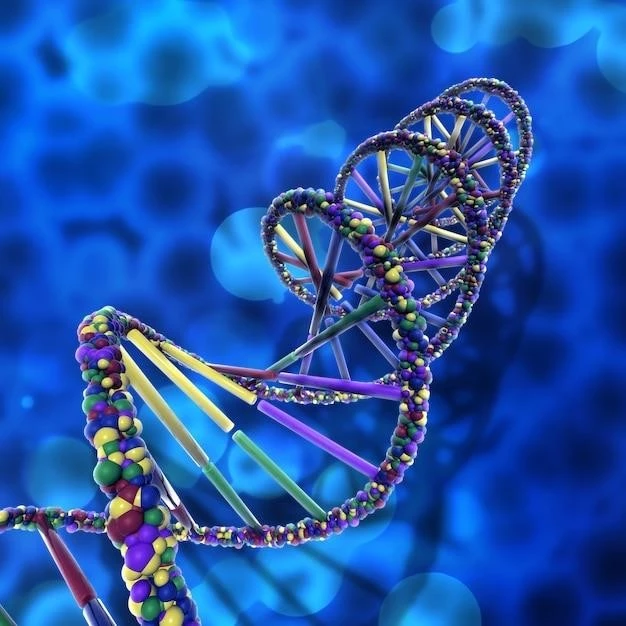The Future of Human Evolution: Genetic Engineering and Beyond
The relentless march of scientific progress has brought us to the precipice of a new era‚ one where we hold the very blueprints of life in our hands. I’m not just talking about understanding our DNA‚ but about actively reshaping it – about the awe-inspiring‚ and frankly terrifying‚ potential of genetic engineering.
I recently delved deep into the world of CRISPR-Cas9‚ a revolutionary gene-editing tool that has taken the scientific community by storm. Imagine being able to pinpoint a single gene within the vast tapestry of your DNA and then snip it out‚ replace it‚ or even tweak it – that’s the power of CRISPR. As someone fascinated by the future of humanity‚ this felt like a peek behind the curtain of our own evolution.
The Promise and the Peril
The potential benefits of genetic engineering are staggering. Think about it: eradicating inherited diseases like cystic fibrosis and Huntington’s‚ boosting our immune systems to fight off infections more effectively‚ even potentially enhancing our cognitive abilities – these are no longer the stuff of science fiction.
But like any powerful tool‚ CRISPR comes with its own set of risks. The ethical implications are profound. What if we create unintended consequences‚ altering the human gene pool in ways we can’t predict? Where do we draw the line between therapy and enhancement? Who gets to decide which genetic traits are desirable and which are not? These are questions that keep me up at night.
My Own Ethical Tightrope Walk
The more I learned about CRISPR‚ the more I grappled with my own internal ethical compass. On the one hand‚ the thought of eradicating devastating genetic diseases feels like a moral imperative. I’ve seen firsthand the suffering they cause‚ the way they can rip families apart. To have the power to prevent that kind of pain is a responsibility we can’t ignore.
On the other hand‚ the idea of tinkering with the very essence of what makes us human is unsettling‚ to say the least. It feels like playing God‚ and that’s a game I’m not sure we’re ready for. What are the long-term consequences of such profound genetic alterations? Could we inadvertently create a two-tiered society – the genetically enhanced versus the rest of us? These are not easy questions to answer‚ and they highlight the need for a global conversation about the ethical boundaries of this technology.

Beyond Genetic Engineering: A Glimpse into the Future
But the future of human evolution isn’t just about gene editing. It’s about the convergence of multiple groundbreaking technologies: artificial intelligence‚ nanotechnology‚ and even the prospect of merging our minds with machines. Imagine a future where we can enhance our bodies and minds with cybernetic implants‚ or upload our consciousness into digital avatars‚ achieving a kind of digital immortality. These possibilities‚ once confined to the realm of science fiction‚ are now within the realm of possibility.

Navigating the Uncharted Waters of Progress
The journey ahead is fraught with both promise and peril. As we stand at this pivotal moment in human history‚ we must proceed with caution‚ guided by both our scientific curiosity and our ethical responsibilities. The decisions we make today will shape the future of our species for generations to come. It’s a responsibility we can’t afford to take lightly.
Here are a few key considerations I believe we need to address as we navigate this uncharted territory:
1. Global Dialogue and Regulation:
Genetic engineering technologies have the potential to impact all of humanity. We need to establish international guidelines and regulations to ensure responsible development and use of these powerful tools. This means fostering open and transparent dialogue between scientists‚ ethicists‚ policymakers‚ and the public.
2. Equitable Access:
We need to ensure that the benefits of genetic engineering are available to all‚ not just the privileged few. This means addressing issues of affordability‚ accessibility‚ and potential discrimination based on genetic information.
3. Education and Public Engagement:
Knowledge is power. We need to educate the public about the potential benefits and risks of genetic engineering technologies. An informed public will be better equipped to engage in meaningful discussions and make informed decisions about the future they want to create.
The Road Ahead: A Collective Responsibility
The future of human evolution is not predetermined. It’s a future we are actively shaping with each passing day. It’s a future that will be defined by the choices we make‚ the values we prioritize‚ and the actions we take.
I‚ for one‚ am both excited and apprehensive about what lies ahead. But I believe that by embracing open dialogue‚ responsible innovation‚ and a commitment to equity‚ we can harness the power of these transformative technologies to create a brighter future for all of humanity.
As we venture into the uncharted waters of genetic engineering and beyond‚ let us do so with both wisdom and humility‚ recognizing that we are not just shaping the future of our species but also the very essence of what it means to be human.










